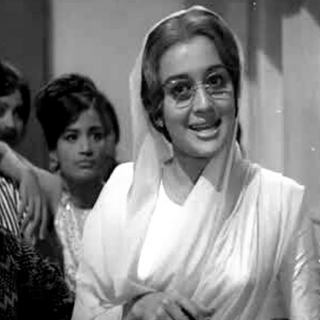As the world frantically searches for a vaccine for the novel coronavirus, anti-vaxxers — people who question the efficacy of immunization — have come out of the woodwork. Most recently, rapper M.I.A. said that she’d rather die than receive the coronavirus vaccine. Soon after, however, she changed her stance, taking issue with people calling her an anti-vaxxer. In an Instagram Live, M.I.A. claimed that there needs to be a third term for her point of view regarding vaccines, something that lies between the binary terms anti-vaxxer and pro-vaxxer — something with personal choice as the deciding factor.
M.I.A is not alone. Actresses Jessica Biel, Selma Blair, and Kristin Cavallari have all peddled choice as an argument against mandatory vaccination. They might acknowledge some positive effects of vaccines — Blair has admitted she vaccinated her own kid — but shy away from unequivocally supporting immunization, saying that the choice should be left up to parents. These celebrities also cite the lack of conclusive research about the negative effects of vaccines as influencing their ambiguity, ignoring the fact that it is impossible to prove a negative in medical science. Increasingly, celebrities are not firmly attaching themselves to either camp but simply copping out of the discussion by claiming that they should be free to do whatever they feel like. Even if that means not vaccinating their children and potentially endangering society as a whole.
This land-of-the-free, “my-body-my-choice” approach, as iterated by famous anti-vaxxer Robert Kennedy, is extremely dangerous. First, co-opting language from the pro-choice abortion movement and trying to piggy-back on its progressive popularity glosses over the fact that vaccination is fundamentally different from abortion. Individual choice with regard to the former threatens massive public health crises; individual choice in the latter safeguards people’s reproductive agency. Abortion is a highly personal choice, whereas immunization is a social responsibility. The concept of choice within these movements cannot be equated.
Related on The Swaddle:
The Truth About Vaccines
In the case of vaccines, foregoing social responsibility to uphold some warped sense of personal agency — as a result of a deep distrust in the pharmaceutical industry, medical community, and the government — puts other children at risk and creates the possibility of life-threatening mass outbreaks. The underlying reasons people cite for this ambiguity are the same — they question the safety of vaccines, despite numerous studies proving that immunization is safe. They also cite side-effects that can permanently hamper babies’ development, despite experts constantly explaining that there is no such thing as a medical treatment with zero side effects, ever.
Peddling choice as a valid critique allows these celebrities to overlook conclusive proof — as conclusive as the scientific community can give us at present anyway. M.I.A., in the IG live, stressed that she never said vaccines don’t save lives, which begs the question: what rational person chooses not to opt for medicine that saves lives? This phenomenon, called vaccine hesitancy in recent times, has been a major reason for parents choosing not to immunize their children. Research shows that “religious reasons, personal beliefs or philosophical reasons, safety concerns, and a desire for more information from healthcare providers” are why parents are holding back on immunizing their kids, despite knowing the benefits.
With the Covid19 pandemic threatening lives worldwide, however, it’s imperative we question this facade of choice, and reckon with the underlying distrust and skepticism. Without a vaccine and its widespread adoption, it’s unlikely that we’ll be able to resume normal life anytime soon. With measles, we have a blueprint for what’s to come in case this does not happen; cases begin to spike in hotspots as soon as vaccination levels dip even slightly. Eradication of highly infectious outbreaks requires an almost universal vaccination effort. We will not be able to get there with coronavirus if people are allowed to opt out behind the veneer of choice. In this time of social distancing, it’s time we also embrace social responsibility.




